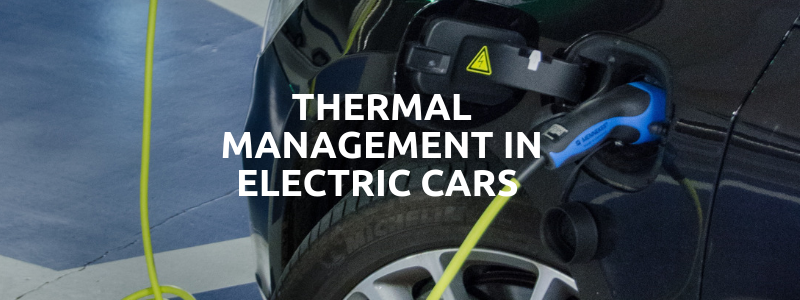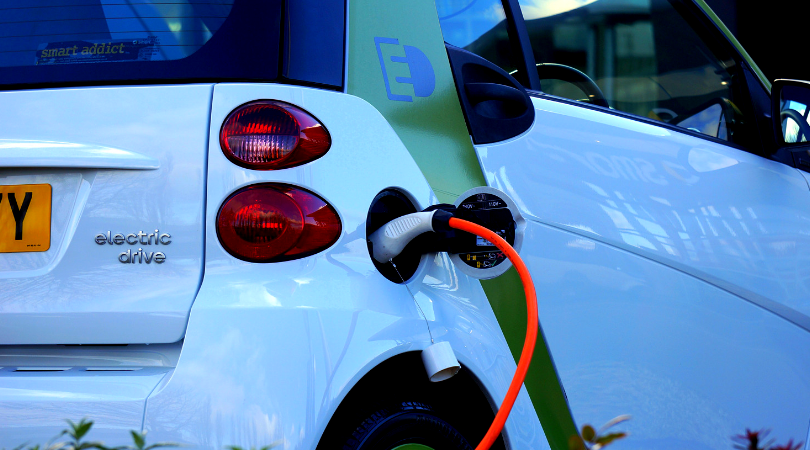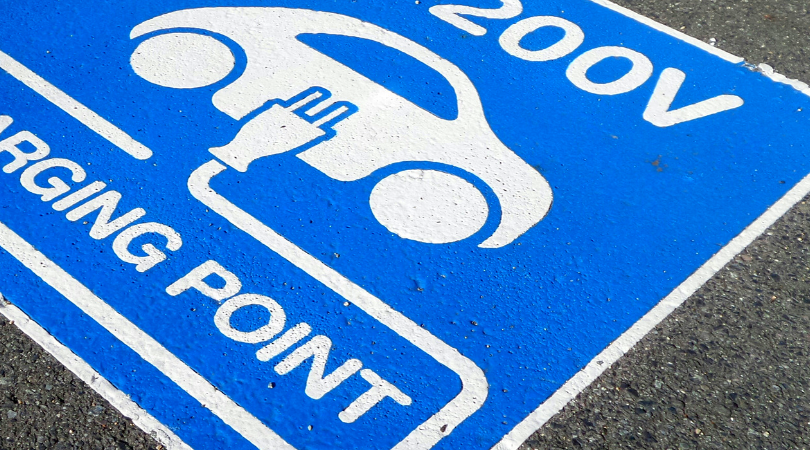
Thermal Management in Electric Cars
Momentum is building in the UK for the take-up of electric cars. Earlier in 2018, the Committee on Climate Change told ministers that three-fifths of all new cars must be electric by 2030, to meet greenhouse gas targets. More recently, sales in electric vehicles have surged in reaction to rising fuel prices, according to the Society of Motor Manufacturers and Traders (SMMT).
However, as demand increases, and electric vehicles (EVs) are developed further, one issue persists – thermal management.
Thermal management in electric cars is central to their development, even as the models themselves improve, alongside the charging infrastructure to serve them. Shell is planning a rollout of ultrafast charging points in western Europe, but at this stage, they are so powerful that no current model of electric vehicle could use them.
In other words, the drive is towards ever more powerful batteries to improve the energy-storing capabilities of electric cars, but for this to happen, there has to be a matching capability in thermal management. Elmelin specialises in providing thermal management solutions to the automotive industry. While this means meeting the demands for more established thermal management and insulation solutions, it also encompasses new automotive technologies, including those behind the evolution of electric vehicles.
Battery Powered Issues for EVs
The main challenge is to provide drivers with at least the same power they would expect from a traditional internal combustion engine vehicle.

The tolerances for operating temperatures in traditional vehicles are generally more generous, so while they require a degree of thermal management, it is not as central an issues as it is with EVs.
The basic principle behind EVs is that they run on batteries. Yes, this sounds obvious, but there are technical challenges arising from developing increasingly powerful batteries to run electric cars.
Lithium-ion batteries generate heat, and the higher performance the battery, the more heat it generates. Thermal management applications are essential to protect the battery itself and the vehicle and provide stability at high temperatures.
With surrounding sensitive electrical components and a need to precisely manage operating temperatures, lithium-ion batteries require a narrow window of operating temperature. If this temperature dips below 0°C, the battery’s chemical reactions slow down, reducing performance. On the other hand, at temperatures above 30°C battery performance deteriorates rapidly. At 40°C irreversible damage can occur.
Optimal battery temperature range is between 20°C and 30°C.
Mica and mica-based insulation provide various solutions for thermal management of electric car batteries. These include battery insulation and lithium ion battery separators, which help boost battery power while maintaining thermal stability.
Protecting Power Electronics Components
Although electric cars mark an evolutionary step in automotive technology, they are still prey to various risks due to how they run mechanically.
One of these risks is thermal runway.
Thermal runway occurs when an increase in temperature changes the conditions in the vehicle which can then set off a reaction. It is an accelerated process of temperature increases, which can then be destructive. In power electronics devices, such as those found in EVs, a higher ambient temperature can alter how the electronics themselves operate, with further temperature rises resulting. This can affect the on-resistance of transmitters, which heat up, and contribute to a positive feedback loop, likely to lead to the electronics in the vehicle burning out.
The use of mica insulation and mica components can help to reduce the risk of thermal runway significantly.
Material Challenges for Motors
Electric motors can be far more complicated to cool than internal combustion engines. At the same time, as EVs evolve, the pressure is on developers to come up with smaller, more efficient high-powered electric motors.
Smaller e-motors can have a higher power density, leading to more efficient performance, but the challenge is to prevent energy depletion from mechanical losses in areas such as the bearings, windage and core.

Also, the latest, ultra-efficient electric motors are designed to cut off if they reach temperatures that could damage their internal insulation, so thermal management is critical.
It is therefore vital to use effective internal insulation, such as mica and mica-based materials.
Mica is adaptable, strong and, crucially for electric cars, lightweight.
For example, it can be used in slot liners, as the shielding material to insulate electric coils. For EVs, the ideal slot liner material help performance while keeping weight to a minimum.
The challenge is to apply thermal management solutions that will not compromise output or reliability. The thinner the slot liner insulation, the better the heat flow from wire windings. Also, optimum thermal management helps the e-motor stay cool, and can improve torque output.
Components and Connectors
Mica is ideal for manufacturing the key components used in electric cars, such as capacitors. Its dielectric properties mean that it has a natural structural stability, even under intense heat.
As mentioned earlier, components in EVs have a much lower tolerance for temperature variations, so it is important that the thermal management and insulation qualities of these components is of a suitably high grade.
This also applies to the connectors in electric cars, which must be fully flame-retardant and hydrolysis-resistant.
Testing for the Future of EVs
As demand for ever-more efficient and sophisticated EVs grows, so it is vital that the technology underpinning them keeps pace, including the materials supporting how they function.
We provide a comprehensive prototyping service for the development and manufacture of thermal management solutions, including automotive applications.
For more information about our thermal management capabilities, please contact us using our enquiry form. Alternatively, you can call us on +44 20 8520 2248, or email sales@elmelin.com
